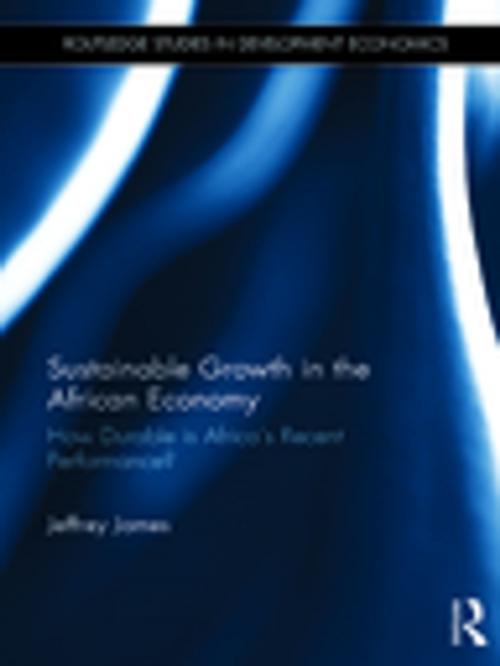Sustainable Growth in the African Economy
How Durable is Africa’s Recent Performance?
Business & Finance, Economics, Economic Development| Author: | Jeffrey James | ISBN: | 9781317234654 |
| Publisher: | Taylor and Francis | Publication: | March 27, 2017 |
| Imprint: | Routledge | Language: | English |
| Author: | Jeffrey James |
| ISBN: | 9781317234654 |
| Publisher: | Taylor and Francis |
| Publication: | March 27, 2017 |
| Imprint: | Routledge |
| Language: | English |
The current growth path in sub-Saharan Africa is not following the Lewis model where labour moves from low-productivity agriculture to higher productivity manufacturing. Instead, it is moving directly to inappropriate (import and labour-saving) methods. This book seeks to show how this distorted growth process leaves out the major resource of these countries – labour – and ends up creating unstable employment and underemployment, leading to inequality and poverty. In this way it demonstrates how the entire growth process may be rendered unstable and unsustainable.
Sustainable Growth in the African Economy considers whether the relatively rapid growth of recent years can be maintained or improved upon, with a focus on the process of industrialisation. Basing itself on a well-known dual-economy model, the proposed book focuses on several major problems of industrialisation, which has long been seen as the means of structural change in an economy which begins from a low income level. The book considers how the future trajectory of sub-Saharan Africa compares to recent success stories on other continents, and explains how factors such as rapid population growth and capital and import-intensive technology in manufacturing could foreshadow future social and political problems.
This book will be essential reading to students and policymakers who are concerned with the existing pattern of African growth.
The current growth path in sub-Saharan Africa is not following the Lewis model where labour moves from low-productivity agriculture to higher productivity manufacturing. Instead, it is moving directly to inappropriate (import and labour-saving) methods. This book seeks to show how this distorted growth process leaves out the major resource of these countries – labour – and ends up creating unstable employment and underemployment, leading to inequality and poverty. In this way it demonstrates how the entire growth process may be rendered unstable and unsustainable.
Sustainable Growth in the African Economy considers whether the relatively rapid growth of recent years can be maintained or improved upon, with a focus on the process of industrialisation. Basing itself on a well-known dual-economy model, the proposed book focuses on several major problems of industrialisation, which has long been seen as the means of structural change in an economy which begins from a low income level. The book considers how the future trajectory of sub-Saharan Africa compares to recent success stories on other continents, and explains how factors such as rapid population growth and capital and import-intensive technology in manufacturing could foreshadow future social and political problems.
This book will be essential reading to students and policymakers who are concerned with the existing pattern of African growth.















